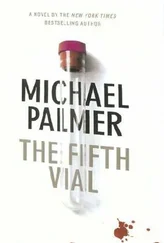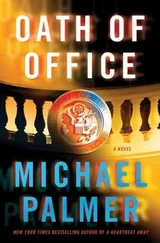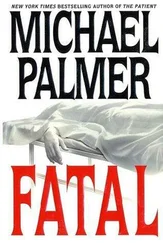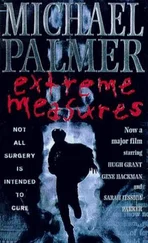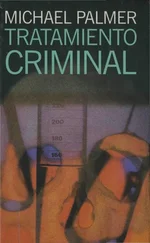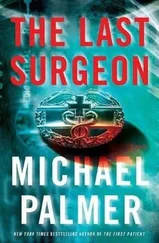“Well, now that it’s been released, how real is the threat to public health?” Broussard asked.
Once again, Allaire and Salitas exchanged minuscule glances.
“This is a flu variant,” Allaire said. “It … um … attacks respiratory functions much the same way a flu virus would, only more rapidly.”
Broussard, a Ph.D. in immunology, frowned.
“So this is like weapons-grade flu?” she said. “That’s impossible.”
“It’s not a type A flu virus, specifically,” Allaire said, assuming Broussard would know that type A influenza was the only one of the three classes of the virus that had ever caused a pandemic.
Vice President Henry Tilden spoke for the first time.
“What can we expect? Symptoms? Spread? Outcome? Is this like SARS?”
Tilden, a former senator from Alabama, had come close to defeating Allaire in the primaries before his first election, and had been appointed as his running mate as a political concession to Southern conservatives. He was respected for his laconic wit and his cool under fire, but like most of the vice presidents before him, had all but disappeared from sight during his first term.
“I don’t know, Henry. I intend to contact our experts at the Centers for Disease Control.”
Hank Tomlinson, the sturdily built Capitol Police chief, pushed himself to his feet.
“And just how did somebody manage to sneak this virus inside the Capitol and detonate fifteen weapons?” he asked. “There was only one entrance open, and we had our most sophisticated screening equipment in operation. In addition, we did an inspection of every bag or briefcase.”
“Well, Hank,” Allaire said, “as head of the security unit here, that’s something I expect you to figure out.”
“Yes, sir,” Tomlinson muttered.
He took his seat and kept his eyes fixed on his hands.
“We’ve got to tackle this like any crisis situation,” Allaire said, “and that means first things first. I promise you, we will overcome this challenge. And we’ll do it together.”
“What do you need us to do, Jim?” Tilden asked.
“While we’re in this waiting game for data about the virus, we need to focus our efforts on two fronts: people and communication. The perception that the entire U.S. government is in imminent danger will send the global economy into a tailspin. We need to minimize that as much as possible.”
“What do you suggest?”
“Craft a message, Henry. You can use my speechwriters if you need them. Let the world know that we’re going to be okay, but until we’re absolutely sure there is no immediate public danger of the virus spreading, we’re going to err on the side of caution. You can say there was an exposure to a highly contagious pathogen. But our microbiologists are hard at work identifying it, and breaking it down. Let the people know that we’re going to be okay, but we need time to complete our thorough assessment.”
“Got it,” Tilden said, seeming actually buoyed to have been given the responsibility.
Allaire watched as the man furiously wrote down notes.
“Work with Megan on this, Henry. Let me read what you have when you’re ready. We’ll use Connie Lawson from NBC to break the story. She’s got the right demeanor to keep facts ahead of emotions.”
Admiral Jakes raised his hand.
“Mr. President, I will mobilize—” He stopped to cough—deep and wet.
“—mobilize the military,” Allaire finished for him.
Jakes, in his mid-sixties, looked gray and almost glassy-eyed. Broussard and McAndrew, seated on either side, subconsciously slid their chairs away an inch or two, and glanced over at him with mixtures of apprehension and revulsion. Allaire nodded at Salitas, who ended a phone call and brought the admiral a cup of water.
“I want to divide everybody out there into three groups. Each group will be relocated to a different room within the Capitol complex to facilitate resource distribution. Admiral, I would like you to be the leader for the C Group. You’ll mobilize in the Senate Chamber and set up operations there. Assign the other chiefs to help with each group, and also the Capitol Police.”
“Who will be in my group?” Jakes asked.
“Gary and I will personally oversee the group designations. We’ll need a little time to complete the list.”
Uneasy looks were exchanged. Allaire sensed the team thought his chosen task was unbefitting a president in the midst of a crisis situation. But they could not know that at the moment, the assignment he had given to himself and Salitas was the most important of all.
“What should we do in the interim?” the admiral managed.
He coughed again. A sheen of perspiration had materialized across his forehead.
“Make a list of supplies you think you will need,” Allaire went on. “Kate, I’d like you to lead Group B and Henry will take the A Group. A Group can stay in the House Chamber, and we’ll move people assigned to Group B into Statuary Hall. Confer among yourselves as to what you think we’ll need for a twenty-four to forty-eight-hour stay. Enlist help from the rest of the Cabinet and anyone else you wish. Megan will act as my liaison. I’ll leave it up to you to work out bathroom usage, but it’s important that we don’t mix the groups as we move people around.”
“Why is that?” Broussard asked.
“For inventory control, Kate. We’ll manage our supplies by group size and we don’t want people thinking they can freely migrate between them.”
The Health and Human Services secretary did not look as if she were buying Allaire’s plan any more than his explanation of what they were up against.
“Yes, Jim,” she said through nearly closed lips.
Sean O’Neil was instructed to mobilize the Secret Service agents to maintain security.
“Report back to me as you make progress. Megan, please make an announcement that in twenty minutes I’ll address the House Chamber. At that time I’ll give an update on our status and share our plans to take care of everyone while we’re sorting things out.”
The White House chief of staff nodded.
“Jordan and Hank, stay here for a few minutes. You, too, Doc. The rest of you have your assignments. Stay calm, delegate to others, and remain in control of the situation. You are the leaders here. I expect you to lead. Good luck.”
With the press of a button, the hydraulics concealing the Hard Room kicked in and opened the wall.
Gary Salitas remained behind as well, though he had not been asked. The room emptied out, and the hydraulic doors closed. Those asked to remain took their seats again.
The president sighed, then inhaled deeply and exhaled slowly.
“Well, my friends,” he began, “I need to start by saying that what I just shared in this room is not exactly the truth.”
DAY 1
10:05 P.M. (EST)
Angela Fletcher had ridden only half of her daily ten miles on the stationary bike when the high-def broadcast of the State of the Union Address on her new Sony went dark. Using the remote, she switched channels on her cable box, but got the same black screen on all the networks. Other channels, those not broadcasting the president’s address, seemed to be working perfectly. The major networks, however, CNN, MSNBC, Fox News included, were all broadcasting the same thing, which was nothing at all.
From her perch atop the bike, surrounded by a mélange of houseplants, every one of which she could name, Angie turned her set off, then on again, and did the same with the cable box. In that time, the stations managed to display their version of a technical difficulty announcement, letting viewers know they were working on the problem.
Angie hopped off the bike and crossed her airy living room to the kitchen, where she grabbed a bottle of vitamin-enhanced flavored water from the fridge. At thirty-eight, despite her disciplined vegetarian lifestyle and deep knowledge of herbs and nutrition, she knew her metabolism had begun to slow. The changes in her hips told her so every day, even though it was likely that she was the only one aware of them.
Читать дальше



